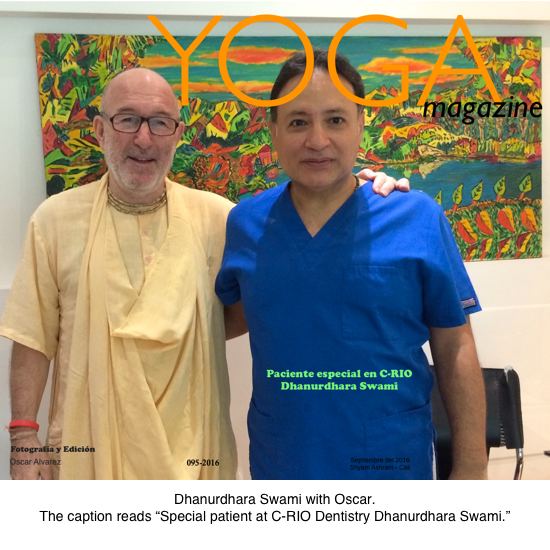Monday Morning Greetings #41 – On Criticism
Dhanurdhara Swami October 10th, 2016
“The poison of that which you criticize comes to you.”
“Criticism is worse that throwing a spear in someone’s body, because the spear can only pierce the body, but criticism can pierce the heart.”
“Criticism is worse than envy. Envy is when it is in the heart. Criticism is when it comes out.”
I have often repeated these statements. I am sure I read them someplace, although somehow I can’t find their reference. I have no difficulty, however, embracing their conclusion. And here is one strong clearly referenced statement about the necessity to avoid criticism.
“Of the nine processes of devotional service, the most important is to always chant the holy name of the Lord. If one does so, avoiding the ten kinds of offenses, one very easily obtains the most valuable love of Godhead.” Cc Antya 4.71
It’s a good reference for the most serious of the ten offenses against the holy name is criticism. Of course, the word for criticism used here “nindā” is qualified by the word “sādhu” and there is also allowance for constructive criticism. We will get to that, but we need to realize that the stakes for an offender are high. You just won’t get “love of Godhead”. And for the devotee that is everything. Best err on the side of caution.
I struggle with that. So many people, devotees who are dedicated and senior, sometimes do things that disturb me. How can one not criticize? Be careful! If one’s criticism is not born of compassion, but even harbors a trace of ill will, that hate will certainly cover the soul, for the soul is simply consciousness meant for love and devotion.
And if I think about it honestly I also must do things that serve as fuel for the lower nature of others. We all struggle with our own impurities and conditioning and its bound to be just the thing that annoys another, especially one with a different nature. That is simply the way of the world. At all costs I just don’t want to be a self-righteous hypocrite that is always clamoring for justice for others and mercy for oneself.
But what about all the injustice? By all means speak up and speak up strongly, but first make sure there is no hate in your own heart, otherwise your kīrtan of others faults which merely embodies the impurities of your own heart will only spread hate of others and not love of God. We have seen too often that the modern champions of controversy mostly create threads that attract the bitter.
I remember reading in a history of the Gauḍīyā Math of a younger devotee who had a very critical intelligence. He would often see things that are wrong. He sought the counsel of a very senior and elevated Vaiṣṇava who gave him the very simple advice which he followed for the rest of his life, “Observe and don’t talk”. He followed that instruction and attained spiritual heights. Yes, it may be one’s service to point on mistakes. I just don’t envy that person and I pray they are fairly pure. Otherwise:
“We all become well-disguised mirror image of anything that we fight too long or too directly… Most frontal attacks on evil just produce another kind of evil in yourself, along with a very inflated self-image to boot.” – Richard Rohr, Falling Upward
My prayer is to be a Vaiṣṇava. So many places in śāstra that is defined as one who is free from the propensity to criticize others. Who else can a Vaiṣṇava be other than one who has no hate in his or her heart? I hanker for such saṅga. And by Śrīla Prabhupāda’s grace there are many such souls. I just have to be the bee that seeks the honey and not the fly that looks for the sores.
To conclude with another oft-repeated statement of mine that has no reference, but I embrace whole-heartedly:
“Bhakti is simple. Even a child can do it. What is difficult is avoiding offense.”
